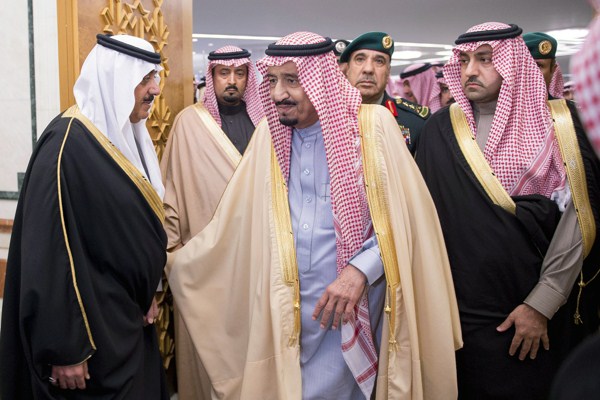The House of Saud proclaims that it stands “in the face of those trying to hijack Islam and present it to the world as a religion of extremism, hatred, and terrorism.” In Saudi Arabia, at least, it has increasingly stuck to its word. Afraid that jihadis will overthrow them, Saudi royals have promulgated strict rules for oversight of waqfs, or religious charities, that hitherto funded Islamists at home and abroad. Last October, Saudi citizens were forbidden by decree from supporting the so-called Islamic State (IS), and the kingdom is building a stout 600-mile security fence along its border with Iraq to keep those jihadis out.
But the monarchy’s actions are still largely limited to its own protection. Beyond its borders, Saudi Arabia remains the major source of Wahhabi ideology, which spreads outward to radicalize foreign Muslims. With the death of 90-year-old King Abdullah and the accession of his half-brother, 79-year-old Salman, to the throne, Saudi Arabia should change its ways.
The attacks in Paris earlier this month serve as a tragic example of Wahhabism’s influence. The Charlie Hebdo attackers, Cherif and Said Kouachi, were radicalized in France by Wahhabi tenet-holding al-Qaida operatives and preachers in their neighborhood mosque and in jail. So was Amedy Coulibaly, who attacked a Jewish supermarket in eastern Paris days after the Charlie Hebdo massacre. Riyadh condemned the Paris attacks as un-Islamic and denied any association. But the next day, Saudi Arabia’s Wahhabi-controlled judiciary publically lashed a blogger for “insulting Islam”—the same reason that the terrorists in Paris gave.

